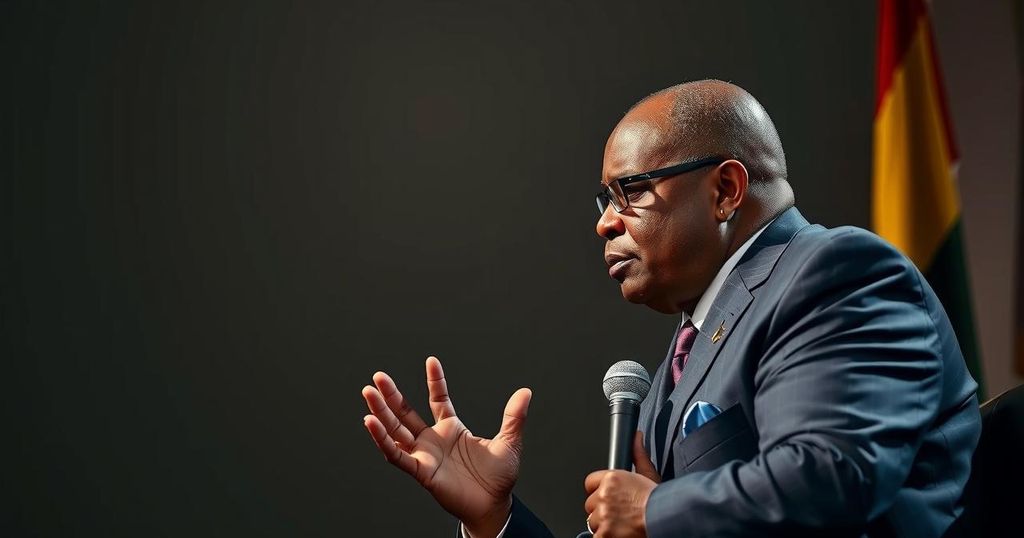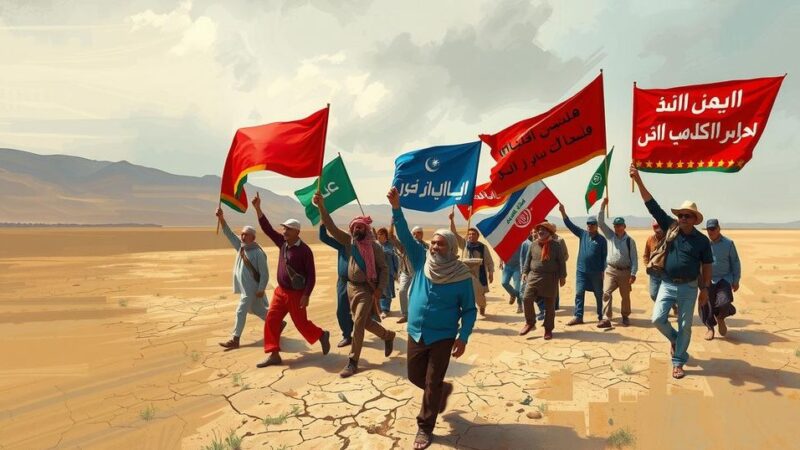In his address at the Afrafranto Mega Victory Walk, Ghana’s presidential candidate Alan Kyerematen emphasized the need for transformative leadership to combat excessive partisanship. He called for a shift from political party loyalty to a focus on visionary governance, pledging to stabilize the economy and empower the youth. Kyerematen’s approach aims to unite Ghanaians under a common purpose, facilitating national progress beyond party lines.
In a compelling address during the Afrafranto Mega Victory Walk in Greater Accra on November 2, 2024, Alan Kyerematen, the presidential candidate for the Movement for Change, presented his vision for Ghana, advocating for transformative leadership to combat the prevalent issue of excessive partisanship. Highlighting Ghana’s ongoing political divide as a major obstacle to national progress, Kyerematen argued that successful nations are built on the efforts of visionary leaders rather than political parties. He referenced global leaders like Deng Xiaoping and Lee Kuan Yew, asserting that their transformative impacts resulted from their commitment to national progress beyond political affiliations. “Great nations of this world were not built on the backs of political parties; they were built on the backs of strong, visionary leaders,” Kyerematen emphasized, urging Ghanaians to prioritize leadership over party loyalty. As he oriented his supporters towards the December 7 presidential elections, Kyerematen declared, “This election is not about the future of political parties; it’s about the future of Ghana,” reinforcing the notion that overcoming partisanship is essential for real advancement. He committed to stabilizing the economy, aiming to strengthen the cedi with a pledge to lower the exchange rate to below five cedis. Kyerematen’s vision extends to the youth, promising that no young Ghanaian would face unemployment upon graduation. He stated, “Under my administration, it will be difficult for a young person to complete school and have nothing to do for a livelihood,” showcasing his dedication to youth empowerment with policies designed to create diverse job opportunities. The candidate advocated for a form of governance that transcends political differences, proposing a national unity government focused on effective leadership and practical policies. He concluded by declaring that his administration would prioritize integrity and transparency. Kyerematen envisioned a society where individual merit, exemplified through the Ghana Card, would supersede party allegiance in accessing government services. As his supporters rallied, Kyerematen closed with an impassioned plea for unity in building a resilient and free Ghana, stating, “Together, we can build a nation that is strong, resilient, and truly free from the chains of partisanship. This is our time, and this is our chance.”
The political landscape in Ghana has long been dominated by partisanship, particularly between the two major parties, the New Patriotic Party (NPP) and the National Democratic Congress (NDC). This excessive focus on party loyalty has often stifled national progress and discouraged collaboration across political lines. In this context, Alan Kyerematen’s vision seeks to shift the focus from political affiliations to transformative leadership that prioritizes the welfare of the nation over partisan interests. Kyerematen’s emphasis on examples from other countries highlights a global perspective on effective governance and leadership, illustrating that true progress often comes from unity and visionary direction rather than from entrenched political divisions.
Alan Kyerematen’s address encapsulates a call for the citizens of Ghana to transcend excessive partisanship and embrace transformative leadership as the pathway to national progress. His vision reflects an urgent need for a shift in political focus towards inclusivity, unity, and effective governance that prioritizes citizens’ needs over party loyalty. Kyerematen’s promises to stabilize the economy and empower the youth resonate strongly with Ghanaians, suggesting a potential shift in political dynamics if he is elected as president.
Original Source: www.ghanaweb.com






